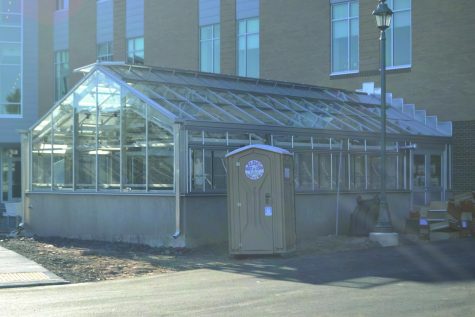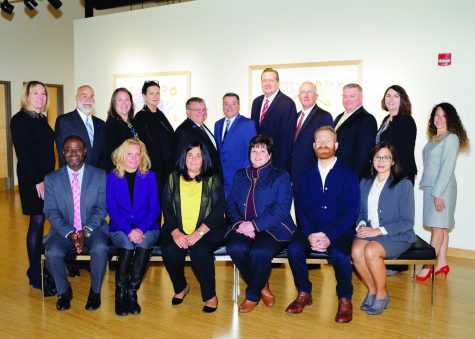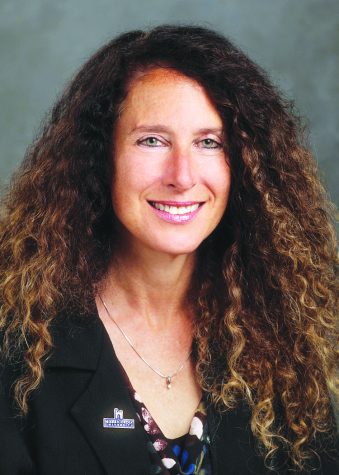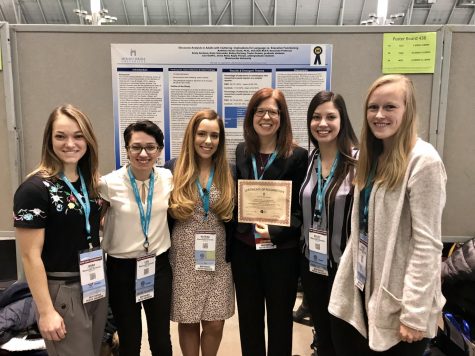New Physician Assistant Program in the Works
October 18, 2017
A new Physician Assistant program may be in the university’s future – potentially even as early as the next school year. The former Physician Assistant program held Accreditation-Provisional status, but surrendered its their accreditation. All Physician Assistant programs pursue accreditation through the Accreditation Review Commission for Education of the Physician Assistant, or ARC-PA. ARC-PA placed Misericordia’s former Physician Assistant program on probation. Accreditation-probation is defined by ARC-PA as “a temporary status of accreditation assigned when a program does not meet ARC-PA Standards and when the capability of the program to provide an acceptable educational experience for its students is threatened.” The former Physician Assistant program’s accreditation was voluntarily withdrawn after it was placed on probation by ARC-PA.
In spite of the former Physician Assistant program surrendering its accreditation, hope for a Physician Assistant program at Misericordia was not lost. An application to begin a new Physician Assistant program began under Dr. Charles Brody, former vice president of Academic Affairs. In early 2016, ARC-PA notified Brody that Misericordia’s request would be placed on ARC-PA’s application agenda. The application for a new program had to be submitted to ARC-PA by August 14th, 2017 – this deadline was met.
From this application process, the new Physician Assistant program – which includes new chair of the Department of Physician Assistant Studies, Jack A. Goble, Jr., MHA, PA-C – is aiming to receive Accreditation-Provisional status. Accreditation-Provisional status is defined by ARC-PA as “an accreditation status granted when the plans and resource allocation, if fully implemented as planned, of a proposed program that has not yet enrolled students appear to demonstrate the program’s ability to meet the ARC-PA Standards or when a program holding accreditation-provisional status appears to demonstrate continued progress in complying with the Standards as it prepares for the graduation of the first class (cohort) of students.”
The Physician Assistant program’s next step in gaining this accreditation will be preparing for a site visit by ARC-PA. Two ARC-PA site visitors will visit Misericordia on November 6th and 7th to “verify, validate, and clarify, if necessary, the information supplied by the program in its application materials,” as provided by ARC-PA’s website. This report will be submitted to ARC-PA commissioners, who will review the report and the application itself in March of 2018. From there, ARC-PA will then make a decision on the request for Accreditation-Provisional status.
“I anticipate that we will hear something back by early April,” department chair Jack Goble stated, “We’re certainly confident (in receiving Accreditation-Provisional status).”
If the new Physician Assistant program receives Provisional-Accreditation status, the program expects a cohort of (20) incoming students by July of 2018. In anticipation of an incoming class, renovations are being made on campus for the program. The first floor of the existing Trocaire Building, located near the Hafey-McCormick Science Building, is currently being renovated for the physician program. This renovated floor will include the latest equipment and educational care technology, classrooms, a physical assessment laboratory, and more. Goble believes the physical assessment laboratory is key for students to learn to do physical assessments during their studies at Misericordia, so they have experience doing physical assessments before going into real-world practices.
“It’s a highly customized space for Physician Assistant education,” said Goble.
The Physician Assistant department has many goals for the new program. First and foremost, of course, their goal is to attain Provisional-Accreditation status. Immediately following that, they are aiming to recruit “twenty, well-qualified students,” Goble stated. The new program’s mission statement is a good starting point that captures their overarching goals: “The Misericordia University Physician Assistant Program strives to attract intellectually talented and caring students who will be educationally transformed and mentored to become competent and compassionate Physician Assistants.”
From there, their goals are refined into four key points, as stated on their page on Misericordia’s website: to recruit qualified applicants who have experience in dealing with diversity, to deliver and advance a curriculum that ensures each graduate possesses the knowledge and skills necessary for entry into clinical practice, to retain and graduate at least an average of 92% of all enrolled students during first three graduating cohorts of 2020 through 2022, and to achieve a first-time-taker Physician Assistant National Certification Examination (PANCE) passage rate of 90% or better.
Finally, Goble believes that there are a variety of benefits that having a new Physician Assistant program at Misericordia could bring. The program could benefit Misericordia directly by adding more diversity of majors in a university that already has a strong group of healthcare majors. The program could also benefit the state, particularly northeast Pennsylvania, as this area is often underserved in health care providers, so many students may go on to work in this area to help this fact and give back to an area in need. Finally, there is a national need for increase in primary care providers, which an increase of graduates in this area would help. So, no matter where Misericordia’s Physician Assistants would go, they would be guaranteed to be doing good and valuable work, with a knowledgeable background in treatment techniques and in ethical values in our ever-changing society.





